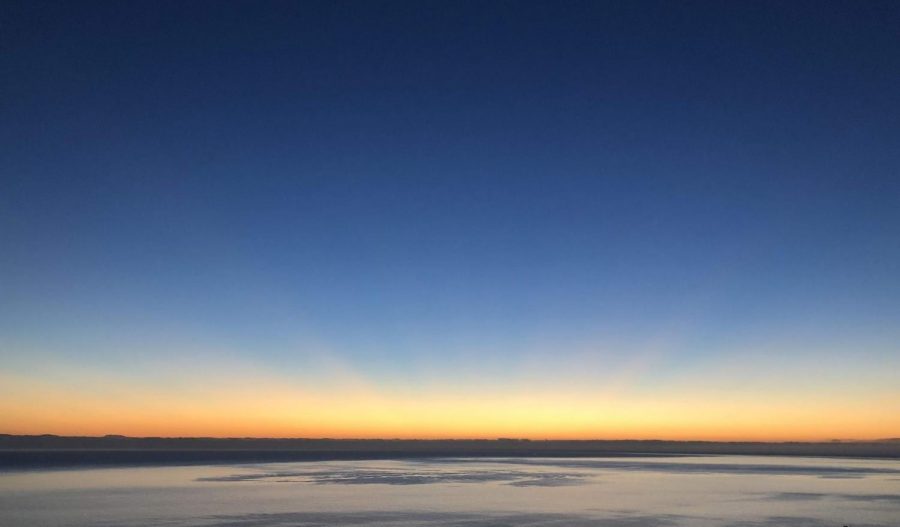CIMI Next Year in Catalina
October 29, 2018
Catalina Island Marine Institute (CIMI) is a camp catered to students on Catalina Island off the coast of California. Wilderness Club takes a weekend trip there every year. Over the course of two days, students get to experience a variety of activities such as snorkeling, tidepooling, hiking, and more.
Catalina is 29 miles off the coast of Long Beach, California. It is a beautiful island, with a diverse environment of beaches, clear oceans, and incredible sea life. Low tides allow for fascinating snorkels, refreshing swims, and peaceful days on the beach. With weather averaging around 70 degrees in the daytime and 65 degrees in the nighttime, days can be spent outside without the familiar Sonoran heat.
CIMI is a 48-hour camp that allows students to dig deeper into the sea life and oceans around them. Snorkels, dissections, tidepooling, and labs allowed them to look closer at the animals in the oceans.
Students go on three snorkels, two in the day and one at night. During the day, you get to experience what it is like to swim with incredible creatures. The oceans on the coast of CIMI have leopard sharks, stingrays, octopi, sheepshead fish, Garibaldi fish, kelp, and more, which students get to swim alongside of. At night, students get to see the bioluminescence from phytoplankton in the ocean, as well as the sea life they saw during the day.
The attendees also had the opportunity to observe a squid dissection. They got to observe the eyes and learn how they see and how it helps them in their daily life. They also got to see how squid eat, swim, hunt, and more.
The squids that were used for dissecting were also used for bait for tidepooling the next morning. The students swam out and climbed up the base of a mountain. The squids were used to lure in animals, such as octopi or eels. This allowed everyone to take a closer look at these amazing creatures and feed the wildlife safely.
On the last morning, the students got to take a closer look at microscopic organisms in the ocean, as well as learn more about the larger creatures of the oceans. They looked at phytoplankton, the premature phase of many sea creatures, under a microscope, and were able to see jellyfish, algae, and more. They also got to observe and learn about invertebrates, which are animals without spines, such as sea cucumbers, starfish, sea urchins, and sea slugs.
For the final day, students got to go on a beautiful sunrise hike, where they took an easy trail to the top of a mountain while it was dark and got to observe the sunrise. The mixture of the ocean breeze, ocean view, and stunning sunrise made for a gorgeous morning.














